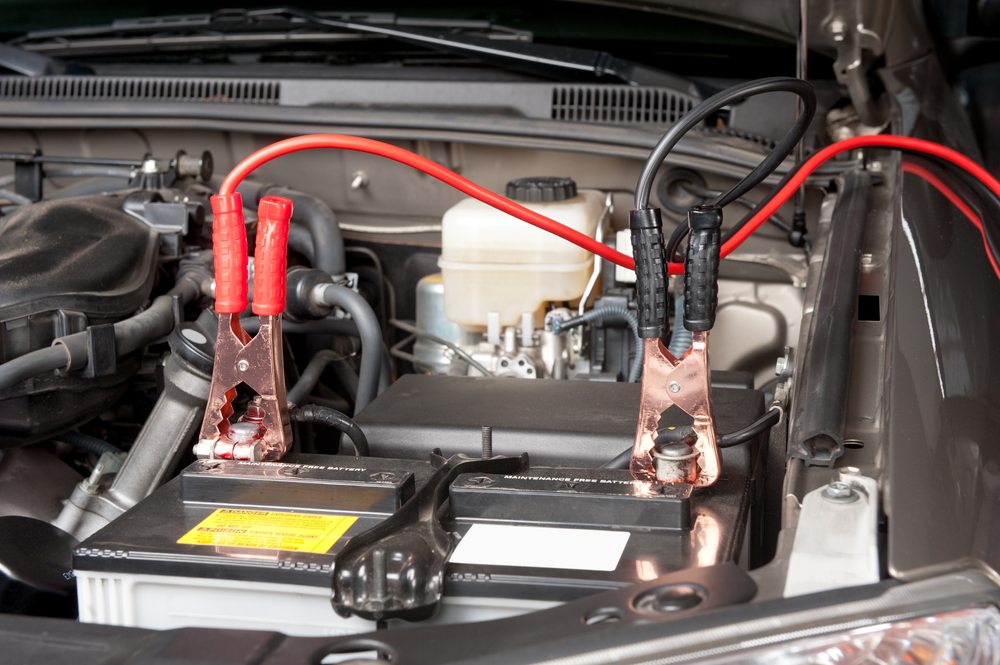
We’ve all been there. You walk out to your car, turn the key, and you get nothing but a terrible clicking sound. A lot of people just assume their car battery has just quit due to age, but that’s not always the case. In fact, according to AAA, most premature battery failures are caused by driver habits, not defects. But there’s one common habit that kills batteries faster than anything else: leaving your car parked too long without running it. Here’s why it happens and what you can do to prevent the problem altogether.
The Real Culprit: Inactivity Kills Car Batteries
While we think of car batteries as tough, they’re surprisingly sensitive to neglect. Modern vehicles constantly draw a small amount of power even when turned off… running systems like alarms, keyless entry sensors, and onboard computers. If you leave your car sitting idle for days or weeks, that steady drain slowly depletes the charge. When the voltage drops too low, the battery’s internal chemistry begins to break down, permanently reducing its lifespan. Inactivity is a silent killer, especially for people who work remotely, store seasonal vehicles, or rarely drive long distances.
Why Short Trips Make the Problem Worse
Even if you drive occasionally, short trips may not save your car battery from failure. Starting a car uses a large burst of energy, and it takes at least 20–30 minutes of driving to fully recharge what was used. When drivers make quick runs to the store or daycare, the alternator doesn’t have time to restore the battery’s charge. Over time, this creates a “deficit” that weakens the battery’s cells. It’s like borrowing money every day and never paying it back. The balance eventually runs out.
Temperature and Weather Play a Big Role
Your car battery also suffers under extreme temperatures, which magnify the effects of inactivity. In cold weather, chemical reactions slow down, reducing the battery’s ability to produce power. In hot climates, fluid inside the battery evaporates faster, corroding internal components. Combine either condition with long periods of disuse, and you have a recipe for early failure. That’s why cars parked for extended periods, especially outdoors, often refuse to start after a week or two of sitting.
Signs Your Battery Is Already Weak
Before your car battery gives up completely, it often sends out warning signs. Slow engine cranking, dim headlights, or flickering dashboard lights are early indicators that your battery’s charge is low. You might also notice your radio resetting or key fob range shrinking. If your vehicle’s start-stop system stops functioning or you hear a clicking noise when starting, that’s a red flag that your battery needs attention. Catching these symptoms early can prevent you from getting stranded.
How to Fix and Prevent Battery Drain
Preventing car battery failure doesn’t require fancy tools, just consistency. Drive your vehicle for at least 20–30 minutes every few days to keep the charge topped off. If that’s not possible, invest in a quality battery maintainer (also known as a trickle charger). These devices plug into a wall outlet and keep your battery at the perfect voltage when the car isn’t in use. You should also clean your battery terminals every few months to remove corrosion, which can block charging current. A little proactive care can add years to your battery’s life.
Common Myths About Car Batteries
There are plenty of myths that cause confusion about car battery maintenance. For example, many people believe idling their car for a few minutes will recharge the battery, but it won’t. The alternator only generates a full charge when the car is driven at sustained speeds.
Another myth: “New batteries don’t need maintenance.” Even fresh batteries can fail early if neglected or left unused for too long. And that old advice about disconnecting your battery to “save power”? Modern vehicles need constant voltage to maintain settings, so that’s no longer recommended.
When It’s Time to Replace, Don’t Wait
Most car batteries last between three and five years, but neglect can shorten that dramatically. If yours is older than three years, get it tested annually, especially before winter. Auto parts stores and service centers often perform free battery checks. If your battery consistently tests low, replacing it early can save you from an inconvenient roadside emergency. Skipping this small precaution could leave you stranded at the worst possible time, like during a snowstorm or when you’re late for work.
Your car battery doesn’t fail overnight. It’s slowly worn down by everyday choices. By driving more frequently, keeping terminals clean, and avoiding long periods of inactivity, you can extend its lifespan and save money. Think of your battery like a muscle. It needs regular use to stay strong. The next time you’re tempted to let your car sit untouched for a week, remember that you might be quietly draining your vehicle’s lifeline. A few minutes of prevention now can mean years of reliable starts later.
Have you ever had your car battery die unexpectedly? What habit do you think might have caused it? Share your story in the comments!
What to Read Next
- 8 Car Maintenance Myths That Drain Your Wallet
- Are You Overspending on Car Maintenance Just to Feel in Control?
- 5 Smart Ways to Save Money on Car Maintenance
- 10 Car Maintenance Habits That Are Financial Black Holes
- 9 Car Maintenance Habits That Cause More Harm Than Good
The post Did You Know Most Car Batteries Fail Because of This One Bad Habit? appeared first on Clever Dude Personal Finance & Money.







